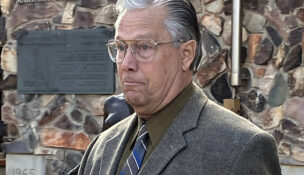Burns is next Senate president
Arizona Capitol Reports Staff//November 7, 2008//[read_meter]
Senate Republicans picked a time-tested fiscal conservative to lead the chamber next year when lawmakers wrestle with a budget deficit of gigantic proportions. The choice of Sen. Bob Burns as...
No tags for this post.

















